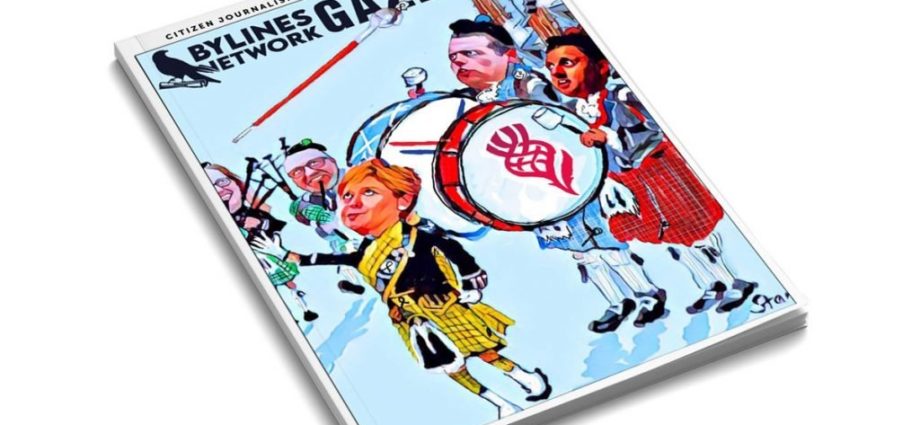ADVERTISEMENT
Queues at Dover have us all thinking about borders again. On a more mundane level, I recently walked with a family and a dog through the land border between Germany (EU) and Switzerland (non-EU) under Basel train station without a single control in sight. The current need to stamp passports was not an inevitable result of Brexit, but a political choice. It could have been as simple as driving on the A1 at Berwick, going from England to Scotland. At least, as it is now.
Why was the choice made to raise a border?
The last time I thought seriously about borders was when I serendipitously chose to go to a political thought conference and I found myself in the bar with two of the contributors to a session on borders. I wondered whether there was an ontology of borders: positivist (those drawn on a map), realist (explained by natural, geographical features), and irrealist (constructed by the human mind); obviously assuming the latter was the most obvious explanation. Then, before Brexit, it was merely a theoretical game.
No more. Now it matters.
It is a platitude to say that borders are to keep people in rather than out, even if the media and political discourse are obsessed with the opposite. However, it strikes me that a border is to be understood in two ways to make sense of this platitude: the basis for national identity and, less expressed, the need for a “natural” limit on the mobility of (certain) people.
Nationalism and identity
Borders contain people in two ways: physically and in the mind. A people is not a race, nor an ethnicity, nor even a language. A people is an accidental group which inhabits a territory under political control. That accidental identity can be either positive or negative. Positively it can be the Scottish model (or Irish and Ukrainian, but that would be to make a claim for countries I feel less sure to speak for) where a land becomes the tradition that was lost and is now regained. But such an understanding requires an open border, to visit others and know one’s differences and to let others visit you and celebrate your difference. To let people flow in and out of your territory. Only then do you know who you truly are.
Negatively it is the nationalism of England (perhaps of Russia or North Korea): exclusion and isolation. Negatively, not only can you say you cannot cross the border to work, but you cast a narrative that those on the other side of the border do not want you, are jealous of you, want to be you, fear you. The reality outside the border never corresponds, though, because you think you already know who you are. Currently, in Europe, I can testify there is no dislike, but merely a range of responses about Brexit from indifference to befuddlement of the decision England took. A physical barrier is never enough to keep a people in. The mind itself must also choose to keep itself oppressed and that is why we are told of the “revenge” of the French, the “spite” of EU, when, in reality, they act as states mostly do: rational agents pursuing interests.
Containment
But why construct both barriers and myths to keep the people in? Let us speculate on the near future if the economic and political status quo remains: the UK will be less productive, more heavily privatised, wages will not rise, benefits will be cut, competition between individuals will keep wages low, all these just to keep profits of companies high. We now have the “cost of living crisis” but read for that “austerity” or “market logic” and realise this is another political choice. To keep profits high. This is the vaunted Singapore economy, one of disparity and inequality. This is the idea of charter cities or free ports where a corporation controls a small territory and an immobile workforce, since health, security and rights are localised to the corporate level.
The rabble
Such a world constructs what Hegel called the “rabble”: a class whose freedom is diminished because economic conditions of existence make individual, free choice impossible. One is tied to one’s needs and to those who satisfy those needs. In such a world, Hegel wants the rabble removed to avoid political instability, but in our world, legislation against collective action and protest guarantee stability. In such a world, members of this class would seek a better life elsewhere.
That is what migrants are. People who move from Newcastle to Birmingham, London or Edinburgh for a better job or education are migrants. They do so — as individuals or families — as we all would, to have something better when it is no longer possible at home. That some move across artificially created borders is about control. You can work in Birmingham if you are from Newcastle but not from Sofia. Soon, charter cities may well create smaller borders; you will be able to work only in the North East because only there are you entitled to health, housing, work. Corporate and privatised charter cities.
And that is why it becomes a moral obligation to have open borders.
To understand ourselves but, more importantly, closed borders do not give us, as they so vociferously argued, the illusory freedom of sovereignty, that ambivalent and empty word. Closed borders diminish our personal freedom and reduce our autonomy to mere rabble for the rich corporations.

We need your help! The press in our country is dominated by billionaire-owned media, many offshore and avoiding paying tax. We are a citizen journalism publication but still have significant costs. If you believe in what we do, please consider subscribing to the Bylines Gazette 🙏


